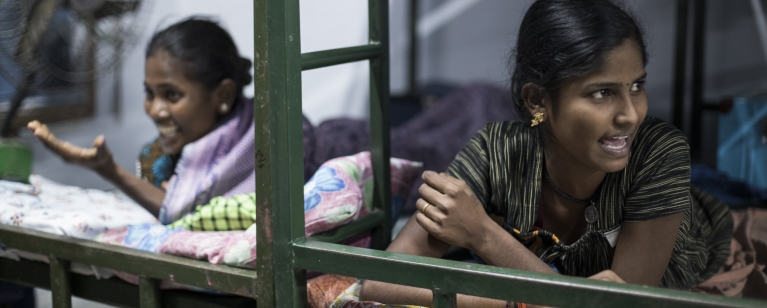
Gunavathy is the first woman worker to access maternity benefits at her spinning mill in Salem, Tamil Nadu.
Two years ago the mill workers had no access to employee state insurance (ESI). ETI successfully engaged with the mill managers regarding the importance and benefits of enrolling the mill onto ESI.
Peer educators are also working to inform workers about the benefits to which they're entitled. Gunavathy, 28, has worked at the mill for 3 years and is the first woman there to access maternity benefits, receiving 26 weeks of maternity pay, at 100% of the average daily wage, under ESI. Managers have agreed to move Gunavathy from spinning to packing after her 7th month of pregnancy and have given her lighter duties.
Peer educator quote: “I came to know that there is an Indian law which protects women against Sexual harassment at the workplace and if any harassment from a working male colleague or superior, they are punishable under the law through Nalam training. I am very confident about my safety and know how to handle these issue in future if it occurs”.
